#cinema europa
Text
Buio al Cinema Europa - Rassegna Horror da Ottobre
Buio al Cinema Europa – Rassegna Horror da Ottobre
Da ottobre sullo schermo del cinema Europa il meglio del cinema horror contemporaneo
Dai successi di Jordan Peele e Ari Aster all’ultimo Guadagnino, l’horror ha valicato i confini del cinema di genere per raggiungere anche il pubblico poco familiare coi film “di paura”. Gli otto appuntamenti della rassegna ripercorrono la rapida ascesa dell’horror con titoli di culto e nuovi nomi alla conquista…
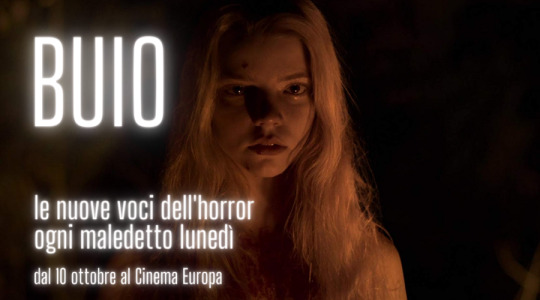
View On WordPress
0 notes
Text


Emilio Sakraya
#emilio sakraya#warrior nun#tribes of europa#actor#male actor#cinema#hothunks#gay boys#gay men#gayhot#hot male#hotmen#muscle men#gay guys#no shirt#muscle#shirtless#hot muscles#gayfit#gayman#gayguy#gay pride#handsome#male beauty#beautiful men#beautiful#sexy hunk#meninos#mens style#men
3K notes
·
View notes
Text

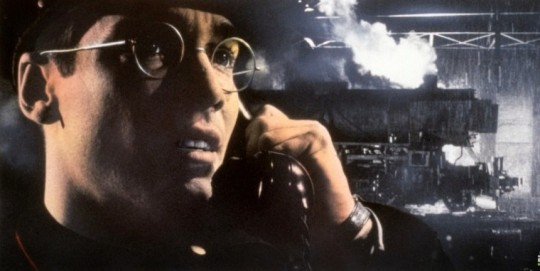

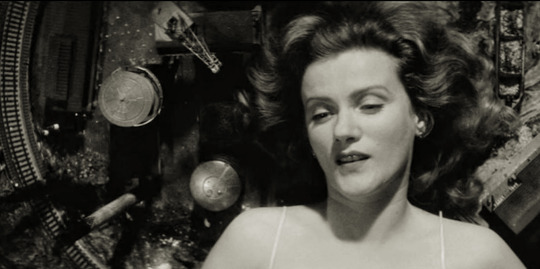
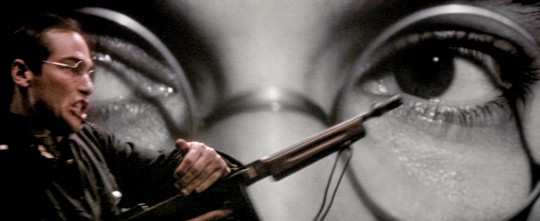


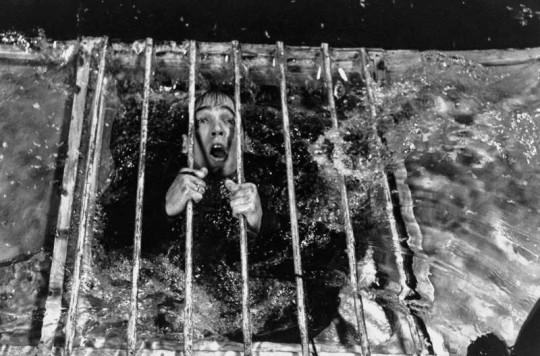

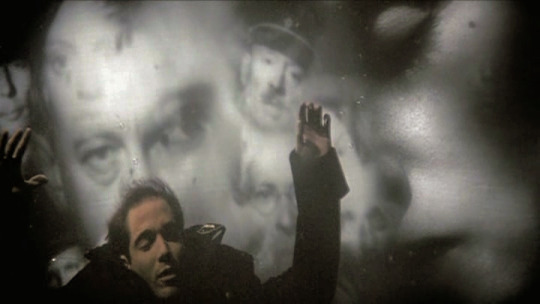
Europa (1991)
#lars von trier#dreams#europa#1990s#surreal#cinematography#film noir#movies#film#director#wwii#trains#cinema#zentropa#jean marc barr#barbara sukowa#dark#avant garde#filmmaking#movie#🎬
103 notes
·
View notes
Text

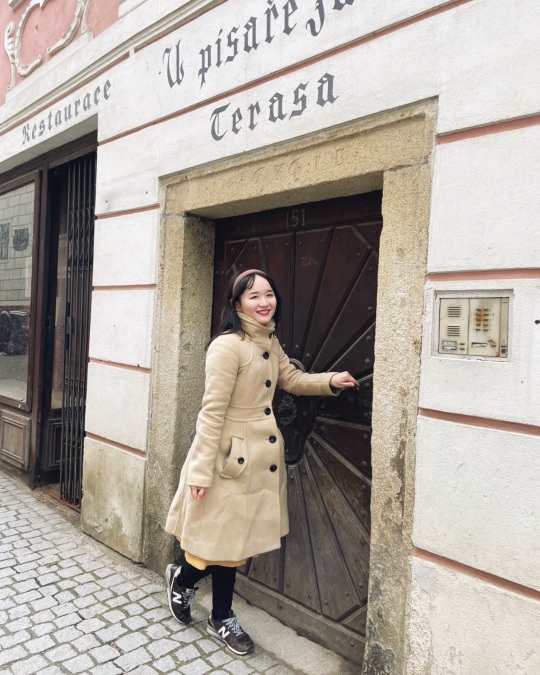




I went to Czech Republic with my mother. 💓
I think the scenery I saw will be useful in my future songs. 💐☺︎
#relax#czech republic#czech tumblr#czech language#czech girl#czech art#czech#czech cinema#czech twins#praha#cesky krumlov#castle#bohemian#gothic#renaissance#organ#pipe organ#classic#portrait#artwork#music#art#photo#europe#europa#beer#schnitzel#rudolfinum#old town#adventure
29 notes
·
View notes
Photo



La notte
Michelangelo Antonioni. 1961
Traffic Jam
Corso Europa, 25, 20122 Milano MI, Italy
See in map
See in imdb
#michelangelo antonioni#la notte#jeanne moreau#marcelo mastroianni#traffic jam#milan#corso europa#lombardy#italy#movie#cinema#film#location#google maps#street view#1961
47 notes
·
View notes
Text

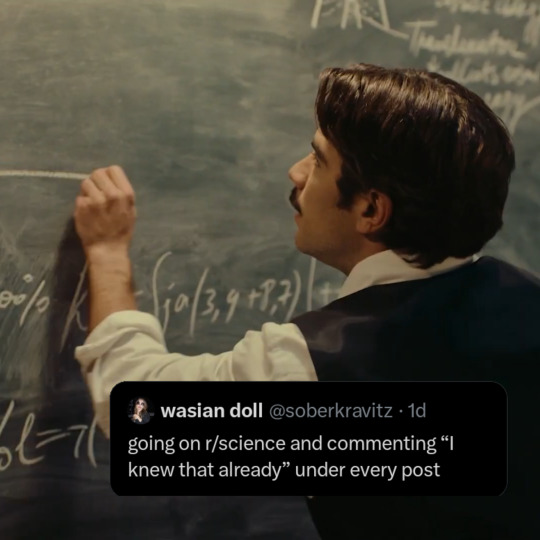
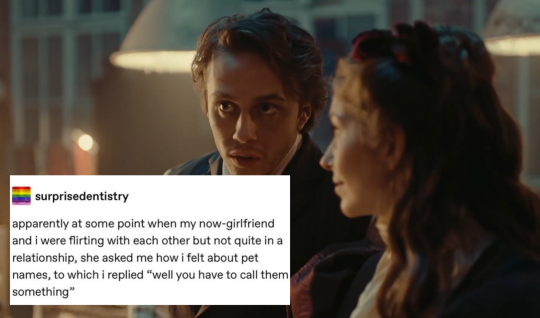

Voltron 4D - Europa Park (A Summary - Part 6)
Bonus: the boys being silly
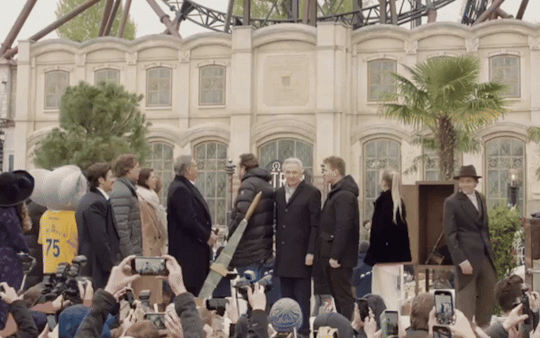
Part 1
Part 2
Part 3
Part 4
Part 5
get tagged:
@goddess-in-training
@hals-homo-blog
#stupid short film has my heart <3#watched a couple of the Ed and Edda animated films last night but they just dont hit the same#if they put Nikola and co. in Grand Prix Of Europe though i will SCREAM#if im sitting there in my local cinema and animated Nikola pops up i do not apologise for the woman I will become#nikola tesla#europa park#voltron nevera#voltron 4D#i already got post 7 in the works
2 notes
·
View notes
Text

2 notes
·
View notes
Text

120- Richard Burton. Painting by Carmen Luna. https://carmenluna.crevado.com/expresiones-ii
#richard burton#painting expressionism#artists international#carmen luna#art collectors#fine art#faces#modern art#portrait expressionism#dexter morgan#moder art#woman artists#art for sale#art europe#female artists#art contemporary#art america#art europa#artwork#cinema#hollywood#united kingdom#cleopatra#liz taylor#ee.uu#art contemporain
2 notes
·
View notes
Photo

PRIMA PAGINA Il Mattino di Oggi domenica, 08 settembre 2024
#PrimaPagina#ilmattino quotidiano#giornale#primepagine#frontpage#nazionali#internazionali#news#inedicola#oggi domenica#settembre#alla#venezia#europa#morire#debito#roberto#napoletano#fondato#commenta#fiore#cinema#vittoria#come#regista#pedro#room#primo#film#girato
0 notes
Text
INTERVIEW — EUROPA CINEMAS LABEL JURY 2024

By Victor Courgeon (FR) & Maarja Hindoalla (EE), pics © Saulė Savanevičiūtė (LT)
The four members of the Europa Cinemas Label Jury at the 2024 Giornate degli Autori —Daira Āboliņa (Artistic director, Splendid Palace, Riga, Latvia), António Costa Valente (Director and Programmer, Teatro Aveirense, Aveiro, Portugal), Andrea Porta (Social Media Manager and Projectionist, Cinema Teatro Nuovo & Cineclub Filmstudio 90, Varese, Italy) and Jana Trnková (Programming Director, Kino Světozor, Prague, Czech Republic)— were interviewed by representatives of the 27 Times Cinema to discuss their role at the festival and their expectations about this year's selection.
What do you expect from the selection, as you are yourselves programmers? What do you consider to be a good competition?
Daira Āboliņa: I aim to discover young European authors, a new cinematic language, and new aesthetics: I'm searching for the next generation of film directors! Another concern is whether the films can interest wider audiences: how universal are they?
Jana Trnková: I always look for something that excites me. I don’t have specific expectations or search for particular qualities—I just want to be impressed by something special. I’m looking for that feeling you get as a spectator, but also as an exhibitor: the desire to share the film and the excitement that you experienced with other people.
Are your views as spectators and as exhibitors the same? Or are they different?
JT: I'm in a very privileged position (laughs). Kino Světozor shows basically what I like and what I want to watch! We program festival films that are on the verge between artistic and mainstream. Something innovative, different, and exquisite, but also accessible to a wider audience beyond just cinephiles.
In addition to the first question, can you tell us about your criteria for judging a film and giving awards?
Andrea Porta: It is quite difficult because each movie has its own specific characteristics. Each film could be interesting for different reasons. We must pay attention to everything —the actors, the photography… There are no canons that we must follow.
JT: We don’t have a table or spreadsheet where we score the points. We are quite different from each other—different countries, different ages, different experiences… The ideal movie is the one that offers each of us something different that we are intrigued by.
AP: A universal movie…
JT: … that offers something for everyone!
António Costa Valente: For me, it is better not to have strict rules when programming or watching films at a festival. The essential elements are a big screen and a great movie. The important is not the chairs, as comfortable as they can be… You must be taken by the film. In Giornate degli Autori, I expect to see these kinds of movies!
Over the past five years, Europe has been through different crises—sanitary, political, geopolitical… How does it affect the audience? Have you had to innovate to bring people back to the cinema?
DA: In general, I think people are back. It depends on the content. If you have strong films, it doesn’t matter if it’s July! Even in the summer, if a film sparks discussion, it works. I’m from a Baltic country, and I work for the biggest and oldest cinema in the country, the Splendid Palace, founded in 1923, now 101 years old!
Nowadays, people are confused and living in the shadow of the war. Many Ukrainians live in Latvia, and we have special free screenings for refugees. We try to understand how to live together with people that suffer from war. Some Russians are also coming to our country and trying to find places to live. The geopolitical situation makes everyone nervous… For that reason, we are looking for strong narratives which reflect the complexity of the current world situation. In Eastern Europe, people look for films that are honest and open to discussions about “living together”.
In my region, people are deeply affected by the current global situation, and we feel responsible for helping them find some stability and positivity. The criteria for judging films are now higher than before COVID—we need stronger films!
ACV: During COVID-19, we opened a drive-in cinema where people watched films from their cars and, instead of clapping at the end, they blinked their car lights and honked their horns. It was fantastic for the audience.
DA: We also opened an open-air cinema next to the wall of our historic venue. This year we had a great summer in the Baltics, it was very warm, and the cinema was absolutely successful. This year we introduced Jacques Demy’s films and musicals, and it was 90% full every screening.

What about Southern European countries? They don’t have the same proximity to the war but face other issues. Cinemas are closing in Spain—what about Italy and Portugal?
AP: In Italy, it’s the same. I live in Milan, and the historic cinema near the Duomo, right in the city centre, closed quietly. The cinema just shut down, and no one was talking about it. For me, it’s a tragedy.
I started working at my cinema in Varese two years ago, so I wasn’t there during the COVID-19 crisis. Now, I think people want to see movies they can’t watch on their laptops or smartphones—something special. One of the most interesting films in Italy last year was La Chimera by Alice Rohrwacher. It is a great movie you must see in a theatre, like Perfect Days by Wim Wenders, which was an unexpected success. Arthouse cinemas must go that way, offering something special.
DA: We sometimes especially announce films as “only for the big screen”. For example, the new Latvian film Flow is a very positive, dynamic, and light story with philosophical depth. Everybody knows that this film will only be in theatres until mid-2025. If someone wants to see it, they need to come to the cinema—and they do! Last year, some films were already available on platforms just three or four weeks after their theatrical release. Some people preferred to wait because COVID habits persisted. But now, the big screen is back as a big event, and Flow helps to open a new era for our cinemas.
JT: After COVID, some people obviously waited for films to come to small screens. But that doesn’t mean films stop being successful in theatres. For example, Poor Things, The Menu... —these films continue to do well even though they’re available for free if you have a subscription. However, now there is so much digital content that you start to lose common themes and topics with your friends. Some have Netflix, others have HBO, some have Disney+, and everybody watches something different. Cinemas, especially arthouse cinemas, offer curated content with a limited number of titles, making it easier to watch the same thing or even meet and watch it together. And then, have a debate. I think that a very important part of the experience of watching audiovisual content is talking to someone about it and sharing your thoughts. In this regard, VOD services and digital spaces are losing a large portion of their audience, who are returning to curated content.
ACV: It’s difficult for me to speak about cinema exhibition in Portugal as a whole, but I can easily talk about the exhibition in my cinema at Teatro Aveirense. The curation of films is crucial for our audience. Directors are crucial when selecting films because people know their names. Not so much the actors, who are more important in the context of American titles. Also, presenting films with the presence of directors, actors, or other filmmakers is very impactful and easy for us to organise with Portuguese films.
JT: I also feel that the post-COVID return has been kinder to arthouse cinemas and smaller theatres than to the huge multiplexes, partly because of the atmosphere. The content is also essential. People stop going to see a lot of these products that are usually shown in the multiplexes because they are not as important, while in arthouse cinemas there are films that spark discussions, films people talk about for months. There’s Anatomy of a Fall, there’s Miyazaki, Wim Wenders... These are topics that start buzzing in May during film festivals and continue until they reach the cinemas, and then people go see them. It doesn’t have to be with a Q&A, but our titles are not products—they’re different films on various topics that engage people. They last longer in the cinema. For example, we have been playing Perfect Days for eight months, and people are still coming to see it. This doesn’t happen with whatever films are screened at multiplexes.
What about young audiences? Children are growing up with small screens, and there’s a crucial age when they could learn to have a shared experience with a film on the big screen. What can arthouse cinemas do to help develop this habit?
ACV: Our best experience with children was with the first Portuguese feature animation, in collaboration with the education department of the region and various schools. At each session, which we held on weekends when the cinema was booked exclusively for this event, they made drawings after the screening about the film. It was a big experience for them, and their reflections are very good.
DA: We have a special program for young audiences called Cinema Academy, and we create special programming for them. Some films are suitable for all ages, but these screenings include additional content, like a lecture specifically for young audiences. We also involved cinema influencers who work with cinema issues in our region. They are younger and have many thousands of followers. Of course, not all of them will come to the cinema, but if they discover, discuss and debate some topics in the films, then people will come to the cinema.
Splendid Palace is a popcorn-free cinema and for young audiences, this is an important issue. We’re planning our first cinema lunch event with a film for a younger audience, featuring special gourmet dishes. We’re still committed to being a popcorn-free cinema, but we’ll see what happens.
JT: Don’t give up on that! (laughing).
We also have a state programme called Schoolbag, supported by the Ministry of Education, where teachers can decide whether to spend a small amount of money on cinema, theatre, museums, or something else. There are many options, but some teachers are our regular audience, and they come almost every year because they trust our taste. You need to impress the adults to bring the kids to the cinema, and school screenings are a perfect example. I think this is something exhibitors should focus on—talking to teachers, talking to adults, and of course, offering options that are educational but also fun and exciting. When kids go to a cinema with their school, it shouldn't be a hardship. It should be fun, it’s something that they should look forward to. If it’s an exciting experience, then they will want to do it even without the school.

0 notes
Text
Amazonas, o Maior Rio do Mundo
Um tesouro do cinema brasileiro, “Amazonas, o Maior Rio do Mundo”, obra de Silvino Santos, foi redescoberto após mais de um século em um arquivo na República Tcheca. Facebook
A descoberta foi confirmada por pesquisadores, incluindo Sávio Stoco da Universidade Federal do Pará. Existe Guarani em SP
O filme, resultado de três anos de trabalho, apresenta as primeiras imagens em movimento do povo…

View On WordPress
#1918#Amazonas#arquivo na República Tcheca. Facebook#as primeiras imagens em movimento do povo indígena Witoto# Mais de 100 tribos isoladas ainda existem no mundo todo# Unesco disponibiliza mais de 80 filmes indígenas gratuitamente Apoie:  Art and culture of the native peoples of our planet. ART AMBA MIRIM#Brazil#close-ups de animais e flora da região#distribuição na Inglaterra#Maravilhas da Amazônia#na Europa#o documentário#o filme 1.2#o filme desapareceu em 1931. Exibições estão planejadas no Brasil e na República Tcheca milagre#o Maior Rio do Mundo Um tesouro do cinema brasileiro#o Maior Rio do Mundo”#obra de Silvino Santos#Palavras Perdidas: Dia#pesquisadores#rituais indígenas e a indústria extrativista#Sávio Stoco da Universidade Federal do Pará. O filme#trabalho
0 notes
Text
EFA: tra le candidature dell'Oscar Europeo "Io capitano" e "La chimera"
Ci sono anche Matteo Garrone e Alice Rohrwacher (sorella di Alba) tra gli autori del miglior cinema d’Europa anno 2023. Rivelate oggi le nominations del principale riconoscimento del cinema europeo, gli European Film Awards (EFA), che verranno assegnati a Berlino il prossimo 9 dicembre. Due film hanno conseguito le cinque candidature principali: The Zone of Interest di Jonathan Glazer e Fallen…

View On WordPress
#Cinema Italiano nominations in Europa#Matteo Garrone Io capitano EFA#Rohwacher e Garrone tra i migliori film europei del 2023
0 notes
Text

🔴 #Sabato #23settembre alle ore 19:00 presso la Sala Conferenze BCC di Gressan torna sul grande schermo PIIGS_TheMovie❗
Dibattito al termine del #film con il (co)regista Mirko Melchiorre, con Filippo Abbate, presidente di #MMT, e con Marco Mori, avvocato costituzionalista.
Consigliata la prenotazione ai numeri
3755635877 (Monica) e 3332762175 (Emanuela). Grazie, Vi aspettiamo 😉
Quante volte abbiamo sentito parlare del rapporto deficit PIL? Quante volte ci hanno detto che se si supera una certa percentuale non siamo più considerati paesi virtuosi?
Ma quel famoso 3%, dove ha origine?
𝙋𝙄𝙄𝙂𝙎 è un film documentario che racconta e descrive come le gravi misure di austerità, volute dall'Europa, hanno distrutto piccole realtà.
Ideato da un giornalista dell'Economist nel 2009, l'acronimo 𝙋𝙄𝙄𝙂𝙎, (maiali) sta ad indicare quegli Stati europei che hanno un debito pubblico insostenibile ovvero, Portogallo, Irlanda, Italia, Grecia e Spagna e per i quali si sono adottate misure drastiche caratterizzate da tagli alla spesa sociale.
#AdrianoCutraro #YanisVaroufakis #ErriDeLuca #ClaudioSantamaria #NoamChomsky #euro #austerity #BCE #economia #politica #UnioneEuropea
0 notes
Text
Europa ‘51 (Europe ‘51) (1952)
After a woman loses her son she devotes her time and resources to helping others, much to the distaste of friends and husband who believe her insane.
Opening with a wealthy party, the theme of class is made clear from the outset and the transition from riches to compassion is easy to identify with. The theme of empathy being regarded by some as an illness is effective and exposes the psychopathic tendencies of the upper strata of society as well as the typical masculine mindset of the time.
The story could have been more concise at times, mainly the scenes of nurturing the sick as their being strangers made the connection tenuous for the audience to invest in, which is sort of the point of the film but is also still true. Suicide in the film is mainly depicted as being attributed to random mental illness rather than a fair reaction to circumstances or environmental pressures.
When the protagonist is accepted by the majority and the social strategies she employs are shown to work, it feels satisfying as well as a relief considering the amount of propaganda in media that would show the reverse effect. The hypocrisy demonstrated by sainted or respected institutions like the church or the state is also important as it demonstrates the fundamental flaws which contradicts their purpose.
Suggesting the protagonist has achieved some kind of sainthood by the end of the film partially reduces the message of social change since society shouldn’t have to wait for one ultimately better person to improve things but should be guided to make many individual and communal differences together. A notable absence is that the narrative doesn’t address a situation where help is given but things don’t work out, for contrast and to clarify that things are worth doing for their own ethical sake and not to see a particular desired result.
4/10 -It’s below average, but only just!-
0 notes
Text

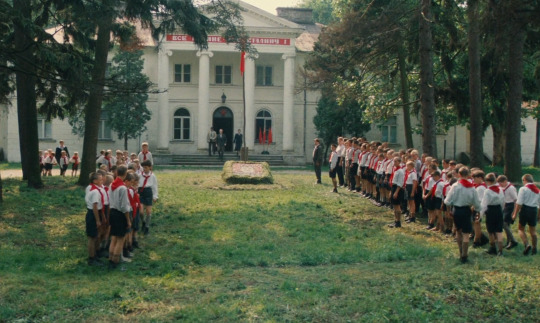
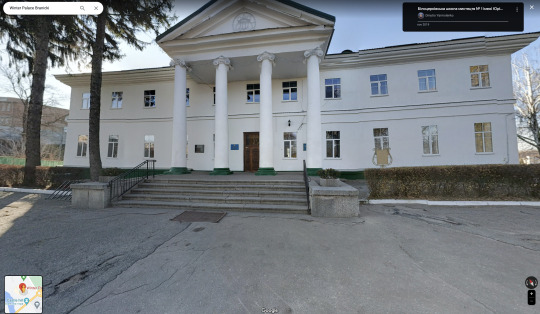
Hitlerjunge Salomon / Europa Europa
Agnieszka Holland. 1990
Palace
бульвар 50-річчя Перемоги, 13, Bila Tserkva, Kyiv Oblast, Ucrania, 09100
See in map
See in imdb
#agnieszka holland#hitlerjunge salomon#europa europa#ukraine#bila tserkva#marco hofschneider#nazi#palace#movie#cinema#film#location#google maps#street view#1990
10 notes
·
View notes
